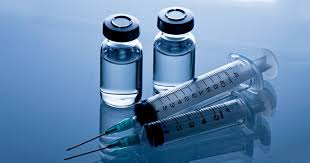Introduction
Vaccination is one of the most effective public health interventions for preventing infectious diseases. It has played a critical role in reducing morbidity and mortality caused by various pathogens. Vaccines not only protect individuals but also contribute to herd immunity, reducing the spread of infectious diseases within communities. This article explores the significance of vaccines, their benefits, and their role in global health.
How Vaccines Work
Vaccines function by stimulating the immune system to recognize and combat pathogens. They contain weakened or inactivated forms of viruses or bacteria, or even just specific proteins from these microbes. Upon vaccination, the immune system generates antibodies that provide protection against future infections.
Types of Vaccines
- Live Attenuated Vaccines – Contain a weakened form of the virus or bacteria (e.g., MMR, chickenpox).
- Inactivated Vaccines – Contain killed pathogens (e.g., polio, hepatitis A).
- Subunit, Recombinant, and Conjugate Vaccines – Use specific pieces of the pathogen (e.g., HPV, whooping cough).
- mRNA Vaccines – Use genetic material to instruct cells to produce a harmless piece of the pathogen (e.g., COVID-19 vaccines).
The Role of Vaccines in Preventing Infectious Diseases
Eradication and Control of Diseases
Vaccination has successfully eradicated diseases such as smallpox and significantly reduced cases of polio and measles. Continuous immunization efforts are necessary to prevent their resurgence.
Protection of Vulnerable Populations
Vaccines safeguard individuals who cannot receive vaccinations due to medical conditions (e.g., immunocompromised individuals) by ensuring the majority of the population is immunized.
Reduction in Healthcare Costs
By preventing diseases, vaccines reduce the burden on healthcare systems, lowering hospitalizations, medical expenses, and loss of productivity.
Common Vaccine-Preventable Diseases
Measles
A highly contagious viral disease that can cause severe complications, including pneumonia and encephalitis. The MMR vaccine has dramatically reduced its incidence.
Polio
A debilitating disease that can cause paralysis. Thanks to vaccines, polio has been nearly eradicated worldwide.
Influenza
Seasonal flu vaccines prevent millions of cases of severe illness and deaths every year.
COVID-19
Vaccination played a crucial role in controlling the spread of COVID-19, reducing hospitalizations and fatalities.
Myths and Misconceptions About Vaccines
Despite scientific evidence, misinformation about vaccines persists. Some common myths include:
- Vaccines cause autism: This claim has been debunked by multiple studies.
- Natural immunity is better: While natural infection can provide immunity, it comes with significant risks and complications.
- Vaccines contain harmful toxins: Ingredients in vaccines are safe in the small amounts used and are rigorously tested.
Conclusion
Vaccines are a cornerstone of public health, protecting individuals and communities from infectious diseases. Their benefits far outweigh any potential risks, and they continue to play a crucial role in controlling and eradicating life-threatening illnesses. By ensuring widespread immunization, we can safeguard future generations from preventable diseases.
Frequently Asked Questions (FAQs)
1. Are vaccines safe?
Yes, vaccines undergo rigorous testing before approval and continuous monitoring to ensure their safety and efficacy.
2. Do vaccines have side effects?
Most vaccines have mild side effects like soreness at the injection site or low-grade fever. Severe side effects are rare.
3. Why is herd immunity important?
Herd immunity helps protect those who cannot get vaccinated, such as newborns or individuals with weakened immune systems, by reducing the spread of disease within a community.









Leave a Reply